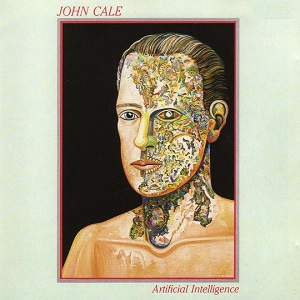
By Dree’Ja (Wikipedia Commons)
Who should make the rules?
A scientist friend has been thinking about the question for most of a week as he reflects on a recent talk by Andrew McAfee, author of The Second Machine Age.
The scientist’s thoughts are interesting, and so I am turning this blog post over to him.
Thank you, scientist friend!
Artificial intelligence (AI) has interested me ever since I read Douglas Hofstadter‘s best seller, Gödel, Escher, Bach: an Eternal Golden Braid in the early 1980s.
In McAfee’s lecture, I was reminded that early AI consisted mostly of tedious lines of programming of “if this then that,” to allow simple problem solving.
However, today’s AI can “learn,” so the new sophisticated programs can be given simple objectives, “like maximizes a game score,” and “by trial and error learn to master the game (think Pong).”
A change has taken place in the AI community in the last decade. McAfee explained that while early AI replaced humans in repetitive task, AI is now poised to replace humans in creative work as well.
Who writes the rules?
One of McAfee’s arguments fascinated me.
He pointed out most adults find it difficult to learn a second language while children generally learn effortlessly.
From McAfee’s talk, I realized that means children are rule learners while adults are rule makers.
As a parent, one of the major challenges in raising children is when teenagers begin this transition – they start making their own rules.
A common unspoken “rule” among many teenagers is they have the right to drive the family car, but don’t have to pay for the car, insurance or gas.
They get upset when the parent points out, “Excuse me, I’m the adult (rule maker) here.”
(See the cartoon Zits for continuous irony on this subject)
We may not realize it, but we are all rule makers.
This idea has interesting consequences.
One of my driving rules is “Never be the fastest driver on the freeway – let the cop-bait pass you every now and then.”
As I’ve explained to my children, if I’m zipping in and out of traffic at 90 mph and get pulled over, I shrug– after all I was breaking my own rule.
If, however, I was going 72 miles an hour, occasionally being passed and I’m pulled over, I think the CHP is being unfair!
The patrol officer is breaking my rule! She should pull over the “real” speeders, not me.
Returning to McAfee, we’re not bothered by computers as “rule learners” since following directions is a child-like behavior.
On the other hand, AI systems creating rules bothers us.
(Think of Hal in 2001, and movies Terminator and The Matrix.)
We don’t want to interact with “adult” artificial intelligence.
Why do we make up rules?
Reality is complex and often incoherent. We make up rules so that we can deal with uncertainty.
Most adults want to administer some control over their life and circumstances–it’s a mark of adulthood.
Young children generally do not.
Parenting clashes often happen when a child starts to ask “why” and “why not?” about their own ideas.
A pioneer in AI study, Hofstadter observed:
“If we ever actually create a sentient machine it will be just as confused and mixed up as we are.”
The world is complex and filled with conflicting information, paradox and unpredictable behaviors.
How people deal with the confusing world often is a measure of intelligence and maturity.
But then I remembered a passage of scripture that always bothers me. Jesus said we need to become as little children to enter the kingdom of God.
What is child-like behavior? Crying? Throwing tantrums? Acting foolish?
Or, given the above, does Jesus really mean we should be “rule learners” not “rule makers?”
Jesus condemned the Pharisees for making rules not found in Scripture.
Similarly, the book of James warns us not to judge God’s law.
Have you ever been angry at God?
Is it possible you were angry because He broke a rule you made up for Him to follow?
Let’s restate Gödel’s Incompleteness Theorem into theological terms:
“Only an infinite in time and space self-referencing being can know Truth. Any other source of knowledge would be incomplete.
Only the Great I Am’s rules are based on the reality we can’t comprehend.”
Within the Kingdom of God, I want to learn God’s rules, not make up my own.
But what about dealing with AI and computers?
I’d still rather be in charge of the rule book
Tweetables
Who should be in charge of making the rules? Click to Tweet
Godel, Escher, Bach and the Kingdom of God. Click to Tweet
Artificial Intelligence, Jesus and rules. Click to Tweet

I always thought that Jesus meant that we would become like children because children generally trust their parents to take good care of them, want their best, and provide boundaries (rules) for safety’s sake.
Exactly, Janice, this is just a philosophical twist on that statement.